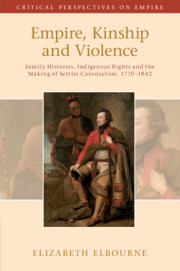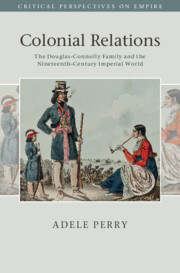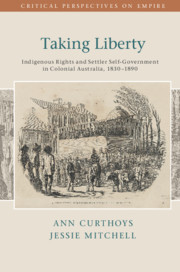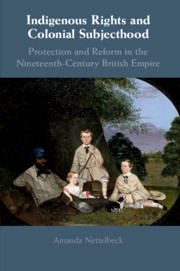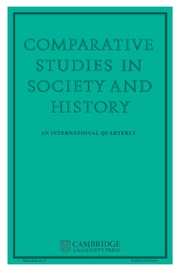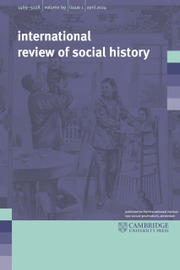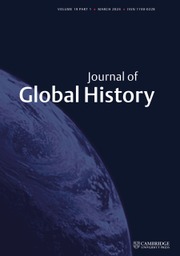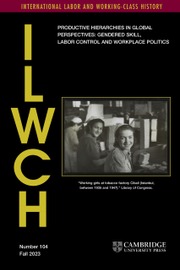Empire, Kinship and Violence
Family Histories, Indigenous Rights and the Making of Settler Colonialism, 1770-1842
Part of Critical Perspectives on Empire
- Author: Elizabeth Elbourne, McGill University, Montréal
- Date Published: August 2024
- availability: Available
- format: Paperback
- isbn: 9781108749497
Paperback
Other available formats:
Hardback, eBook
Looking for an examination copy?
This title is not currently available for examination. However, if you are interested in the title for your course we can consider offering an examination copy. To register your interest please contact [email protected] providing details of the course you are teaching.
-
Empire, Kinship and Violence traces the history of three linked imperial families in Britain and across contested colonial borderlands from 1770 to 1842. Elizabeth Elbourne tracks the Haudenosaunee Brants of northeastern North America from the American Revolution to exile in Canada; the Bannisters, a British family of colonial administrators, whistleblowers and entrepreneurs who operated across Australia, Canada and southern Africa; and the Buxtons, a family of British abolitionists who publicized information about what might now be termed genocide towards Indigenous peoples while also pioneering humanitarian colonialism. By recounting the conflicts that these interlinked families were involved in she tells a larger story about the development of British and American settler colonialism and the betrayal of Indigenous peoples. Through an analysis of the changing politics of kinship and violence, Elizabeth Elbourne sheds new light on transnational debates about issues such as Indigenous sovereignty claims, British subjecthood, violence, land rights and cultural assimilation.
Read more- Appeals to a broad range of scholars of British imperial history, settler colonial studies, Indigenous studies, the history of the American Revolution, and histories of Canada, Australia and southern Africa
- Uses human stories to illuminate the broader history of the formation of settler colonial states, including the changing politics of violence and kinship
- Explores the early history of struggles over Indigenous rights
Reviews & endorsements
‘Elbourne's exploration of settler colonialism at Britain's ‘imperial meridian' is magisterial in scope and execution. Via the sprawling Brant, Bannister and Buxton families, Elbourne expertly connects colonial violence both to economic exploitation and to humanitarian moralising in revolutionary America, the new Antipodean colonies, West Africa and metropolitan Britain.' Zoë Laidlaw, University of Melbourne
See more reviews‘This exhaustively researched and elegantly written book provides a new perspective on the genesis of settler colonialism in North America, Australasia and Africa by focusing on the dynamism of three variously implicated families. The Brants, Banisters and Buxtons carved out an intergenerational imperial presence as they participated in the contraction and re-expansion of the British Empire's settler colonies between the 1770s and 1830s. In these days of simplistic and binary contests over the nature and legacies of colonialism, Elbourne's wonderfully nuanced and focused scholarship deserves the widest possible readership.' Alan Lester, University of Sussex
‘In a brilliantly successful and very well written experiment, Elizabeth Elbourne has combined the global scale of the British Empire, on four continents, with the local of individual families. Through this compositional tour-de-force, she presents innumerable insights into the processes of colonization, for the indigenous, colonizers and their interaction.' Robert Ross, Leiden University
‘In this exemplary transnational history, Elizabeth Elbourne provides a creative and devastating account of the linkages between family, intimacy and colonial violence in the British Empire. Focusing on the Brant, Bannister, and Buxton families, Elbourne demonstrates the intertwining of humanitarianism and colonialism during the first half of the nineteenth century and offers a model of how an analytic focus on family sheds new light on indigenous and settler histories as well as colonialism itself. Highly recommended.' Pamela Scully, Emory University
‘[this] stimulating examination of the subject is a useful addition for libraries specializing in British imperial history; borderlands studies; and the history of Indigenous people in North America, Australia, and South Africa. … Recommended.’ M. Klobas, Choice
Customer reviews
Not yet reviewed
Be the first to review
Review was not posted due to profanity
×Product details
- Date Published: August 2024
- format: Paperback
- isbn: 9781108749497
- length: 445 pages
- dimensions: 229 x 152 x 23 mm
- weight: 0.641kg
- availability: Available
Table of Contents
Introduction. 'Kinship, violence and the colonial state'
Part I. North America:
1. Before the revolution: belonging and un-belonging in American-Haudenosaunee borderlands
2. All the king's men: kinship and the American revolution
3. Land, identity and Indigenous sovereignty in British North America, 1783-1820
Part II. Upper Canada, New South Wales, Van Diemen's Land, Victoria, Western Australia, the Cape Colony, Sierra Leone:
4. Upper Canada: Haudenosaunee land claims and the politics of expertise
5. New South Wales: Frontier warfare and the 'rule of British law'
6. Southern Africa: Protest, petitions and the paradoxes of imperial liberalism
7. From Sierra Leone to Swan River: The Bannisters' imperial world
Part III. Britain, the Cape Colony, West Africa:
8. Colonial sins and Priscilla Buxton's quest for virtue
9. Keeping colonialism in the family: humanitarianism, empire and the Niger Expedition
Conclusion.
Sorry, this resource is locked
Please register or sign in to request access. If you are having problems accessing these resources please email [email protected]
Register Sign in» Proceed
You are now leaving the Cambridge University Press website. Your eBook purchase and download will be completed by our partner www.ebooks.com. Please see the permission section of the www.ebooks.com catalogue page for details of the print & copy limits on our eBooks.
Continue ×Are you sure you want to delete your account?
This cannot be undone.
Thank you for your feedback which will help us improve our service.
If you requested a response, we will make sure to get back to you shortly.
×
